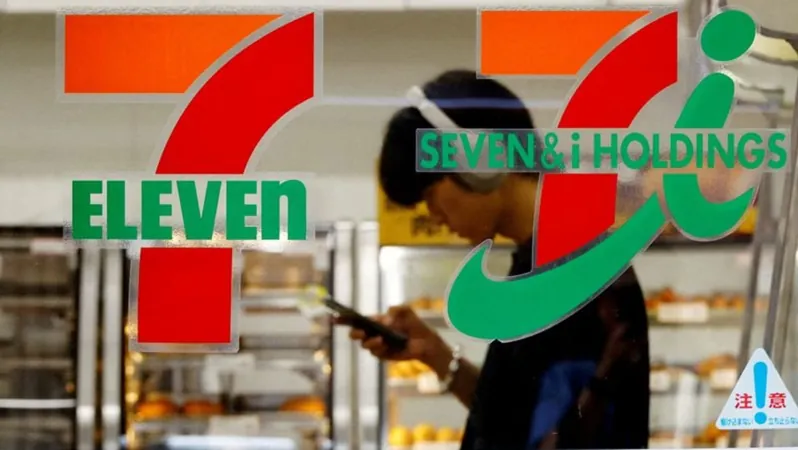
Rising Frustrations Among 7-Eleven Franchise Owners in Japan: A Call for Fresh Leadership
2024-09-25
TOKYO:
The landscape of Japan's retail market could be shifting as dissatisfaction grows among 7-Eleven franchise owners. Jun Nagao, a former franchisee from Gunma, expresses mixed feelings about the prospect of foreign ownership but acknowledges that a takeover could herald much-needed changes for the struggling retail giant.
Nagao, who operated his store until last year, cites a series of strategic errors as the catalyst for Canada’s Alimentation Couche-Tard's recent $38.5 billion bid—a move that, if successful, would be the largest foreign acquisition of a Japanese company to date. Other franchisees echo Nagao's sentiments, largely criticizing the parent company, Seven & i Holdings, for its management decisions and operational missteps, with many welcoming Couche-Tard's bid as a potential solution to these longstanding issues.
Despite Seven & i's rejection of the proposal, Couche-Tard remains interested in acquiring the chain, which accounts for a significant portion of the global 7-Eleven market. Although the Japanese division is smaller compared to the U.S. in sales volume, it boasts a remarkably high profit margin of 27%, drastically outperforming its peers worldwide.
Franchise owners share several grievances, notably the significant failure of the 7pay cashless payment system, which suffered a disastrous launch and was shut down just three months later. As Japan grapples with inflation after decades of deflation, franchisees are feeling pressure from rising costs and increased competition from rivals like Lawson and FamilyMart.
The sentiment among owners is one of urgency—many feel that the current management has failed to adapt to the evolving marketplace. Tak Niinami, CEO of Suntory Holdings and former head of Lawson, remarked that the Couche-Tard proposal could serve as a vital wake-up call for Seven & i to reassess its strategies.
Survey results published anonymously reveal a mixed outlook. While around 80% of franchisees reported satisfaction with overall management, those who voiced dissatisfaction highlighted concerns over the allocation of royalties, which constitute a significant portion of profits returned to the parent company. Owners assert these funds are not being used effectively to improve their business operations.
Additionally, Shigeo Kasai, a franchise owner who spoke publicly, praised management in his region but acknowledged the potential for refreshing innovation that foreign ownership might bring. The declining Japanese population poses a unique challenge for convenience stores striving to expand, leading some owners to speculate that a change in leadership could reinvigorate the market.
Interestingly, some franchisees predict that regardless of the outcome of Couche-Tard's bid, the ownership structure of 7-Eleven is poised to change eventually due to the pressing need for revitalization and growth within the brand. One owner suggested that if the Canadian retailer's approach fails, another company will likely emerge to seize the opportunity.
As the tension between franchise owners and corporate management continues to bubble to the surface, the future of 7-Eleven in Japan hangs in the balance. Whether a change in ownership can provide the strategy overhaul desperately needed remains to be seen, but one thing is clear: the voices of franchise owners are growing louder, signaling a demand for accountability and innovation in a retail giant that has lost its way.

 Brasil (PT)
Brasil (PT)
 Canada (EN)
Canada (EN)
 Chile (ES)
Chile (ES)
 España (ES)
España (ES)
 France (FR)
France (FR)
 Hong Kong (EN)
Hong Kong (EN)
 Italia (IT)
Italia (IT)
 日本 (JA)
日本 (JA)
 Magyarország (HU)
Magyarország (HU)
 Norge (NO)
Norge (NO)
 Polska (PL)
Polska (PL)
 Schweiz (DE)
Schweiz (DE)
 Singapore (EN)
Singapore (EN)
 Sverige (SV)
Sverige (SV)
 Suomi (FI)
Suomi (FI)
 Türkiye (TR)
Türkiye (TR)